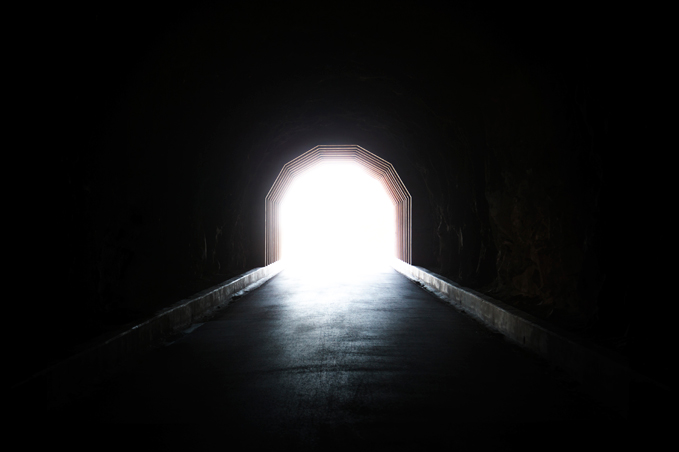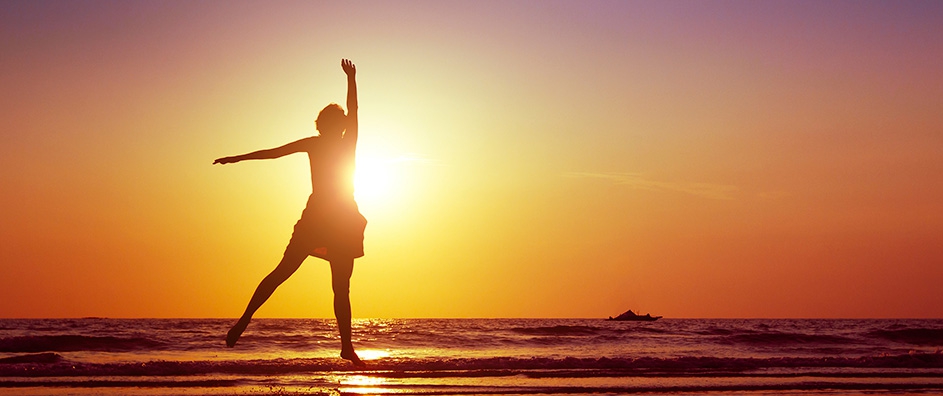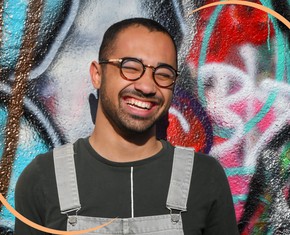The views expressed in our content reflect individual perspectives and do not represent the authoritative views of the Baha'i Faith.
Lately I’ve spent a fair amount of time contemplating my approaching death.
It sneaks up on me when I least expect it. I’ll be happily reading or writing or talking with friends, and suddenly I’ll imagine the world without me in it. I don’t think about it in a morbid way—it’s almost like a detached curiosity, a simple wondering, a quiet realization that so many of my possessions and the natural beauty I see around me and the people I love will outlive me.
No, I’m not sick, thankfully. I don’t have any terminal diseases that I know of, and my mind and body seem to work just fine, or at least as (relatively) well as they have in the past. No need to send your black suit to the dry cleaners just yet.
 I don’t even have a specific reason, other than getting another day older every 24 hours, to consider my demise so frequently. I have no morbid preoccupations. I’ve faced death before in wartime, and always tried assiduously to avoid it. I’ve never considered suicide, or been clinically depressed, or had any real reason to want to die. I love living, and have always tried to make the best of it, no matter what the circumstances. Actually, I realize I’ve got a very good life here in this plane of existence, which I’m deeply grateful for, and I don’t want to leave it anytime soon.
I don’t even have a specific reason, other than getting another day older every 24 hours, to consider my demise so frequently. I have no morbid preoccupations. I’ve faced death before in wartime, and always tried assiduously to avoid it. I’ve never considered suicide, or been clinically depressed, or had any real reason to want to die. I love living, and have always tried to make the best of it, no matter what the circumstances. Actually, I realize I’ve got a very good life here in this plane of existence, which I’m deeply grateful for, and I don’t want to leave it anytime soon.
My wife and I have a wonderful, loving, respectful and happy relationship. I consider her my best friend, and have felt that way since we met almost a quarter-century ago. We live in a comfortable home in a beautiful forest in the mountains, have close friends on every continent, have satisfying and eventful professional careers, have eagerly involved ourselves in multiple long-term campaigns for social change and have accomplished many if not most of our goals. We have four intelligent, kind, loving children who we’re very proud of, all of them grown now and all of them leading productive, successful, happy and fulfilling lives. We both love our Faith, which has focused our souls, supported and guided us and helped connect us with so many remarkable people, causes and communities. Our lives have depth and joy and meaning.
You’d think, with all this as background, that I would have no desire or need to think about death.
But death increasingly finds its way into my thoughts. I’ll turn 65 this year (God willing), which puts me solidly in the final phase of this earthly existence. I can no longer get away with kidding myself that I’m a youthful, sort-of middle-aged guy on a long, gradual glide path toward my own distant mortality. Every day I read the obituaries, and every day I see at least one obit for someone younger than I am now. I’m the oldest member of my immediate family, now that my parents have passed on. Occasionally I’ll feel a new pain where I haven’t felt one before. When I go to the gym to work out, I don’t have the endless stamina I used to enjoy. I’ve fought long and hard in this daily battle we call life, and I sometimes feel weary. All of these little things add up, and as a result the prospect of my own demise has suddenly become quite real to me, in a way it never did when I was younger. That stark reality seeps more and more into my daily reflection, prayer and meditation, and invades my waking thoughts, too.
My grandfather died on his 106th birthday. My father’s life lasted 90 years, and I suspect he would have lived much longer if he could’ve conquered his alcohol and tobacco habits sooner. Happily I don’t have those addictions, so my thoughts about death aren’t centered in any life-threatening chronic behaviors or in my genes—everyone tells me I’ll probably live to a venerable old age. Conceivably, if all the planets align properly and medical science continues to advance, I could have another thirty or forty years of life here on Earth. I even checked out my life expectancy with this handy calculator: http://gosset.wharton.upenn.edu/~foster/mortality/ The calculator said I’d live well into my 90s. But none of us has a guarantee, do we?
Lately I’ve coined a name for this increasing contemplation of impending death—I call it the organic metaphor. Since everything organic has a life-cycle—a plant, an animal, a human being—we all get little organic memos about our mortality. Life itself gives us hints constantly. When we’re young, we have seemingly unlimited energy and vitality. But as we age, as our cells begin their decline and we inevitably lose some of that energy, our physical bodies send us an entire cascade of unmistakable signals. Metaphorically, every individual organism stands for the larger concept of that overall life cycle, so the signals we get act as regular reminders—“Hey!” Our bodies tell us, “Pay attention! I can’t carry you around forever, you know.” If we pay attention, life itself tells us to stop focusing on the physical, which will soon end; and start focusing on the spiritual, which has no expiration date. Each ache and pain, each illness or debility, each small loss of our former physical acuity and prowess, even the cycle of the seasons as they pass by and each new year as it arrives, all reminds us that this physical life has a built-in limit no one escapes:
Absolute repose does not exist in nature. All things either make progress or lose ground. Everything moves forward or backward, nothing is without motion. From his birth, a man progresses physically until he reaches maturity, then, having arrived at the prime of his life, he begins to decline, the strength and powers of his body decrease, and he gradually arrives at the hour of death. Likewise a plant progresses from the seed to maturity, then its life begins to lessen until it fades and dies. A bird soars to a certain height and having reached the highest possible point in its flight, begins its descent to earth.
Thus it is evident that movement is essential to all existence. All material things progress to a certain point, then begin to decline. This is the law which governs the whole physical creation. – Abdu’l-Baha, Paris Talks, p. 90.
This short series of essays will take a look into the Baha’i teachings on death—not as something to fear or dread, but as a messenger of joy. We’ll explore what we need to do as individuals to prepare for its eventual arrival. In this meditation on mortality, I’ll ask: What can we learn from the organic metaphor? What does nature, and what do our own bodies, have to teach us about this stage of life and its constraints? Most importantly, how can we each come to the point, spiritually, that allows us to joyfully look forward to death?
You May Also Like
Comments

















Yesterday a dear brave friend and man of the people, Justice Kep Enderby Q.C., passed away in Sydney Australia.
Kep was an exceptional person who fought in the Royal Australian Air Force as a teen age fighter pilot in the Pacific war against imperial Japan and he later became the Attorney General in our national government before assuming the presidency of the Universal Esperanto Association (Rotterdam)
The Oxford dictionary defines a coincidence as a concurrence of events or circumstances without apparent causal connection; it's the ...apparent part I find striking
Kep and and his dear wife Dorothy along with many Aussies enjoy a some what irreverent sense of humor so please indulge me by airing a joke or two on gallows humor:
Saint, Sir Thomas Moore (1478-1535) drolly comments to his executioner while ascending the scaffold:
"Pray, sir, see me safe up; and as for my coming down, let me shift for myself."
Given that the Vatican in 1935 declared More the patron saint of statesmen, (sic) lawyers and politicians and that your recent posts address Mary the Catholic, coincidences abound, what?
And, my favorite, is composed by the lexicographer, Samuel Johnson from a similar time:
"Depend upon it. When a man knows he is to be hanged in a fortnight it concentrates his mind wonderfully."
Baha'i love
Paul
Your family loves you dearly.